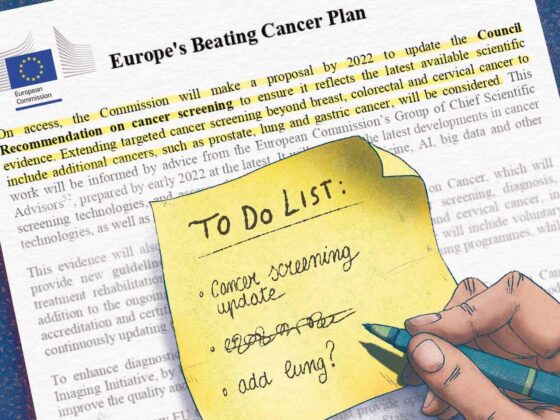More than half of women in oncology practice believe their gender adversely affects their prospects for job promotion, especially in academia. The cross-sectional survey, published in JAMA Netw Open (December 30, 2021), found that more academic female oncologists than non-academic female oncologists report a poor sense of belonging in the workplace, with one in five currently considering leaving academia.
“Given that more than 20% of female academic oncologists were considering leaving academia, gender inequality is at high risk of continuing if the culture is not addressed,” write the authors.
While enrolment of women in US medical schools has surpassed men, women are underrepresented in academic oncology. Statistics show women represent just 35.9% of the academic oncology faculty (37.1% in haematology/oncology, 30.7% in radiation oncology, 38.8% in surgical oncology, and 50% in paediatric haematology/oncology). Women are particularly underrepresented in leadership roles, occupying 31.4% of chairs in medical oncology, 17.4% in radiation oncology and 11.1% in surgical oncology. The pattern is repeated in professional oncology associations, with only seven out of 25 past presidents of the American Society of Clinical Oncology, for example, being women.
In the current study, Emily Merfield, a radiation oncology resident at the University of Wisconsin School of Medicine and Public Health, set out to identify the key factors associated with US female oncologists’ decisions to pursue academic or non-academic oncology practice and to characterise perceptions about their current careers.
The survey, distributed through email and social media, was completed by 667 female oncologists, of whom 422 (63.2%) identified as academic and 245 (36.8%) as non-academic. For the study, academic oncology practice was defined as clinical practice in a medical centre dedicated to scholarly activities (including teaching and research), as well as patient care, often in conjunction with a university or medical school; while non-academic oncology was described as hospital-based practice, community clinical practice, hybrid practice, government employment, or industry employment.
Results show:
- More than half of respondents (54.6% academic oncologists and 50.6% non-academic oncologists) believe they were less likely than male colleagues to be promoted;
- 92 academic oncologists (21.9%) reported that they were likely or very likely to pursue a career outside the academic setting within the next five years, with 26 (28.2%) stating they would switch to industry employment and 23 (25.0%) to community clinical practice;
- 7.9% of academic oncologists versus 2.0% of non-academic oncologists reported rarely or never feeling a sense of belonging in their work environment (P<0.001);
- Academic oncologists perceived that the biggest sacrifice of pursuing an academic practice was time with loved ones (42.9%), followed by money (20.1%) and pressure for academic promotion (18.0%). Non academic oncologists perceived that the biggest sacrifice of pursuing academic practice would be pressure for academic promotion (41.6%), followed by time with loved ones (22.4%);
- 41.2% of non-academic versus 27.6% of academic oncologists believed gender had a positive or somewhat positive impact on their ability to obtain a chosen job (P=.001).
- 23.5% of respondents reported that their spouse or partner and 26.4% that their family extremely or moderately affected their decision to pursue academic practice. The frequency did not differ between academic and non-academic oncologists.
“We found a clear dichotomy in the perception of academic and non-academic oncologists on how their gender affected their ability to obtain a chosen job,” write the authors. “This suggests that women in non-academic oncology are becoming increasingly recognised as key members of the oncologic treatment team.”
Strategies for improving recruitment and retention of female academic oncologists, suggest the authors, include reducing gender-based disparities in salary and promotion as well as developing a sense of belonging to ensure identity safety and minimize stereotype threat. “Specifically, removing visible reminders that women are not welcome and training faculty member to provide performance feedback that is free of sexism are important next steps,” write the authors.
Future studies, they suggest, should explore the association of gender perception with career length, and compare motivations for women and men behind career choices and departure from academic oncology.












